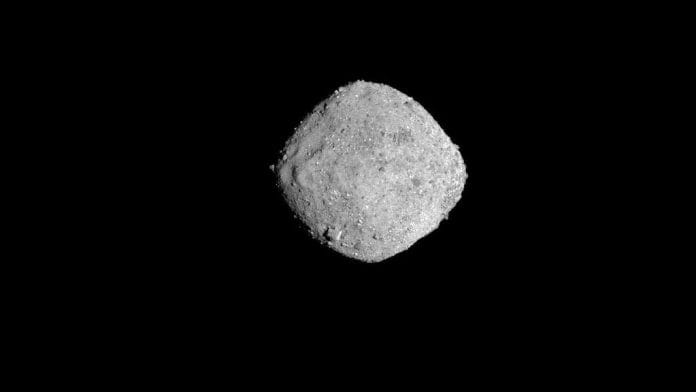ScientiFix, our weekly feature, will offer you a summary of the top global science stories of the week, with links to the best sources to read them. It’s your fix to stay on top of the latest in science.
NASA spacecraft reaches asteroid to return samples to us
The Osiris-Rex spacecraft finally reached the asteroid Bennu after a two-year journey to the rock, which orbits between Earth and Mars. The seven-year mission will involve studying the asteroid in an effort to understand the primitive processes that shaped our solar system. It will be in orbit around the asteroid from January, and land on the asteroid in July 2020. It will collect a soil sample in 2021 and drop it off on Earth two years later. Read more on The New York Times.
Four women accuse Neil deGrasse Tyson of sexual harassment
As more women speak out against sexual harassment and assault, more idols are falling. Neil deGrasse Tyson, the astrophysicist famous for hosting the TV show Cosmos and his “spoilsport” tweeting, had earlier been accused of rape several years ago. Now, three more women have come forward with allegations of sexually inappropriate behaviour by Tyson. Buzzfeed has the details.
China launches historic first mission to the far side of the moon
China has launched humankind’s first mission to the far side of the moon, the part of the lunar surface we can never see from Earth. The launch took place this week, with the lunar landing expected in January. Read ThePrint’s report here.
SpaceX delivery capsule might be contaminating the International Space Station
Last year, a SpaceX Dragon capsule delivered supplies to the International Space Station (ISS) and docked there, along with the subsequent Dragons. Among the supplies it had brought on board was an instrument called SAGE-3, which studies ozone and aerosols. Surprisingly, it was this instrument itself that discovered the Dragons were polluting the spaceship by ‘outgassing’, or releasing molecules they aren’t supposed to). Wired has the details.
Extensive corn farming in America is changing the local weather
In the only non-space news of this week, it turns out that Americans have planted so much corn, it has begun to affect the weather of the country, and corn farmers themselves are vouching for it. The Corn Belt of the US, located in the Midwest, has seen corn production increased by over 400 per cent in the past 50 years. This level of greening has increased rainfall, cooling the areas where corn is grown to the crop’s advantage. Atlas Obscura has more.
Bonus! Here’s a fantastic video that was uploaded to Twitter of the first ever sounds of wind on Mars.
BREAKING: Humans have never before heard the sound of wind on Mars until now! Listen to #SoundsOfMars as recorded by @NASAInSight as Martian winds swept over our lander. Best with headphones or a subwoofer. https://t.co/VreQxcAnAM pic.twitter.com/yd98NgZgR3
— Jim Bridenstine (@JimBridenstine) December 7, 2018
The headline of the first item of this article has been corrected to reflect that NASA’s Osiris-Rex spacecraft has reached the asteroid Bennu, not landed on it. The error is regretted.






